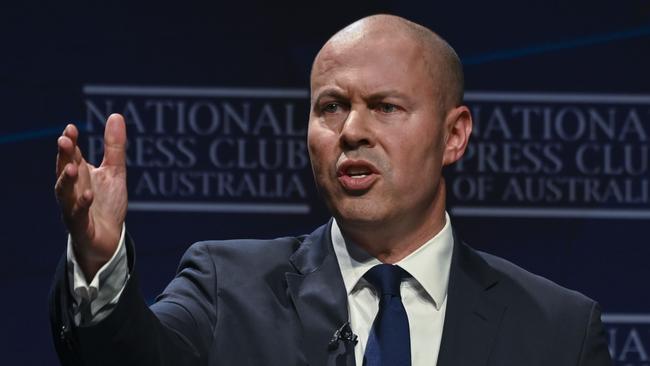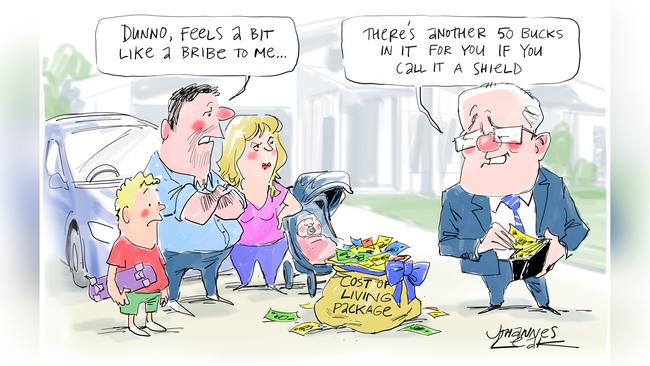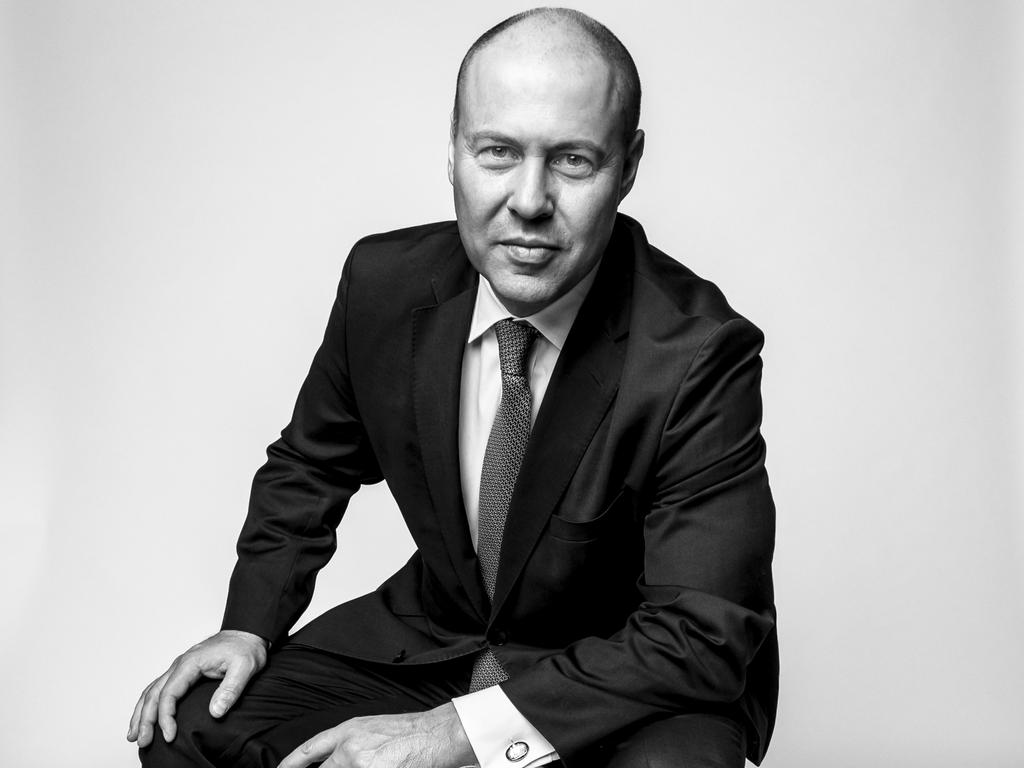
At one level, the Morrison government’s fourth budget is its best: deftly dealing with war, pandemic and natural disaster, and setting up a fighting chance of political longevity. At another level, though, it’s a further missed chance to get government spending under control.
The imminent election is just the latest reason to put off the hard decisions about making government more effective and the economy more efficient, and to let people keep more of their own money. Every time government plays Santa Claus, it’s giving you a present with your own money. And Liberal governments routinely say you know how to spend your own money better than they do.
Even so, the temptation to take from some to give to others is well-nigh irresistible this close to an election, and by continuing to run debt and deficit for at least the next decade we’re still mortgaging the future for a better time now.
For more than a decade, relatively strong economic growth has masked stagnant real living standards. Successive governments have boasted about how well the economy is going, yet most people have felt they’re working harder but not getting ahead. The reason is immigration.
Bringing in a quarter million people a year on average – all of whom need a job, a home and a means of transport – has certainly boosted overall economic growth but it has depressed wage growth, made housing unaffordable and contributed to clogged roads and public transport.
The government (with big business) says we need more skilled migrants yet the pandemic-driven pause in immigration proved the jobs immigrants mostly fill are in retail, hospitality, accommodation and seasonal agriculture. They’re not high-skill jobs at all but the ones Australians are reluctant to do at current wages. Thanks to the immigration pause, wages were starting to grow strongly and unemployment to drop sharply (absent pandemic restrictions), but this is unlikely to continue once the government ramps immigration back to previous levels, as the budget forecasts. Even though the economic impact of renewed high immigration won’t be felt until after the election, its prospect is going to excite boardrooms much more than voters.
These days, what’s not in budgets is usually more significant than what is. The last budget to attempt serious structural reform was way back in 2014. There were changes to indexation to slow down the inexorable growth of welfare payments. There was a ban on school-leavers getting the dole because young adults should be earning or learning, not getting something for nothing. That budget’s fate, to be sabotaged in the Senate by Labor and Clive Palmer, egged on by some Liberals wanting to end the Abbott government, has effectively killed our appetite for reform.
Since then, while governments have taken all the credit they can for good economic news, almost none of it has been the result of any decision of theirs.
Take this budget’s “good news” that welfare bills will fall by $11bn across the course of the forward estimates. This is not because the government has pruned eligibility or because structural change has made more people more employable. It’s simply the result of the end of pandemic restrictions plus an economy pumped up by the sugar hit of $300bn in pandemic-driven spending.
On Tuesday night, Josh Frydenberg took credit for “fully funding” the National Disability Insurance Scheme to the tune of almost $40bn a year. As first announced by the Gillard government, this was going to cost “only” $12bn a year and help only those with severe disabilities.

That has more than doubled as eligibility has expanded and the scope and cost of services have blown out. Of course, people with disabilities deserve the best possible life, but should taxpayers really have to fund lawn-mowing and even sexual services under the NDIS?
In fact, the NDIS has become emblematic of the problems of modern government. Because it’s a joint venture between the federal government and the states, where the states’ costs are capped but not the federal government’s, it’s almost impossible to reform. What state minister is ever going to risk the wrath of the parents of kids with disabilities when it’s the feds that pay the bills? And what federal minister is going to risk unpopularity on a mission impossible? So the cost just goes up and up regardless of whether it’s value for money or the extent to which the system is being worked for the subsidies.
More budget “good news” is the latest forecast that net debt will peak at about $900bn, not the $1 trillion-plus previously feared. Again, this is the result of changing economic conditions rather than better government policy.
Just think how much greater the deficit would be if the federal government didn’t get the $30bn a year generated by taxes on the resources sector. Yet despite needing the revenue that coal and gas provide, and despite wanting the tens of thousands of jobs they sustain, both sides of politics are committed to “net zero” emissions, which entails the rapid demise of the industries that help sustain government services and our standard of living.
Governments normally can’t help patting themselves on the back on budget night. Despite his best efforts to avoid hubris, the Treasurer came close to telling voters they’d never had it so good, with his claims of the “largest and fastest” improvement to the budget bottom line in 70 years and that our economic recovery “leads the world”. Most voters tend to react: if things are so great, why isn’t it better for me?
If you’re an economic conservative, I suspect the budget has got you asking: “What’s the point of the Morrison government other than to stay in office?” The budget offered no evidence of any inclination to tackle the fundamental problem of government that’s too big, too wasteful and too ineffective, largely due to the dog’s breakfast of divided responsibilities between the commonwealth and the states.
It’s true that spending will always be higher, regulation always more burdensome, political correctness always more rampant and national security less tended to under a Labor government. Even so, post-budget, the Morrison government’s strongest argument for re-election remains less its own merits but that Labor would be worse.
I hope the campaign changes that, and that finally we see a contest based on the values that once distinguished the left from the right; plus some policy bravery from a Coalition government that needs to give its supporters something to fight for.
Peta Credlin is the host of Credlin on Sky News, 6pm weeknights.






What’s not to like in a budget that delivers cost-of-living relief plus big infrastructure spending, and reduces expected debt and deficit?